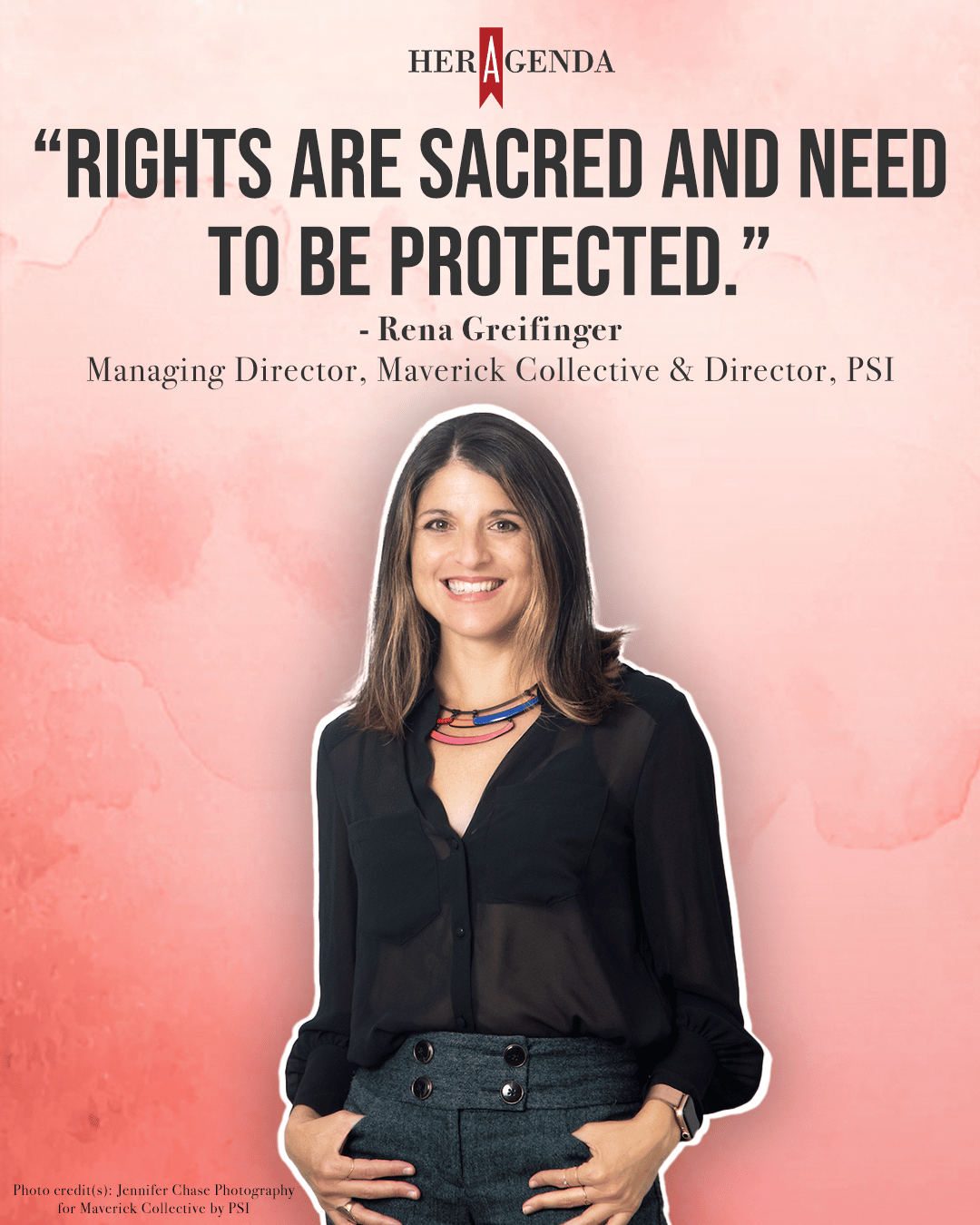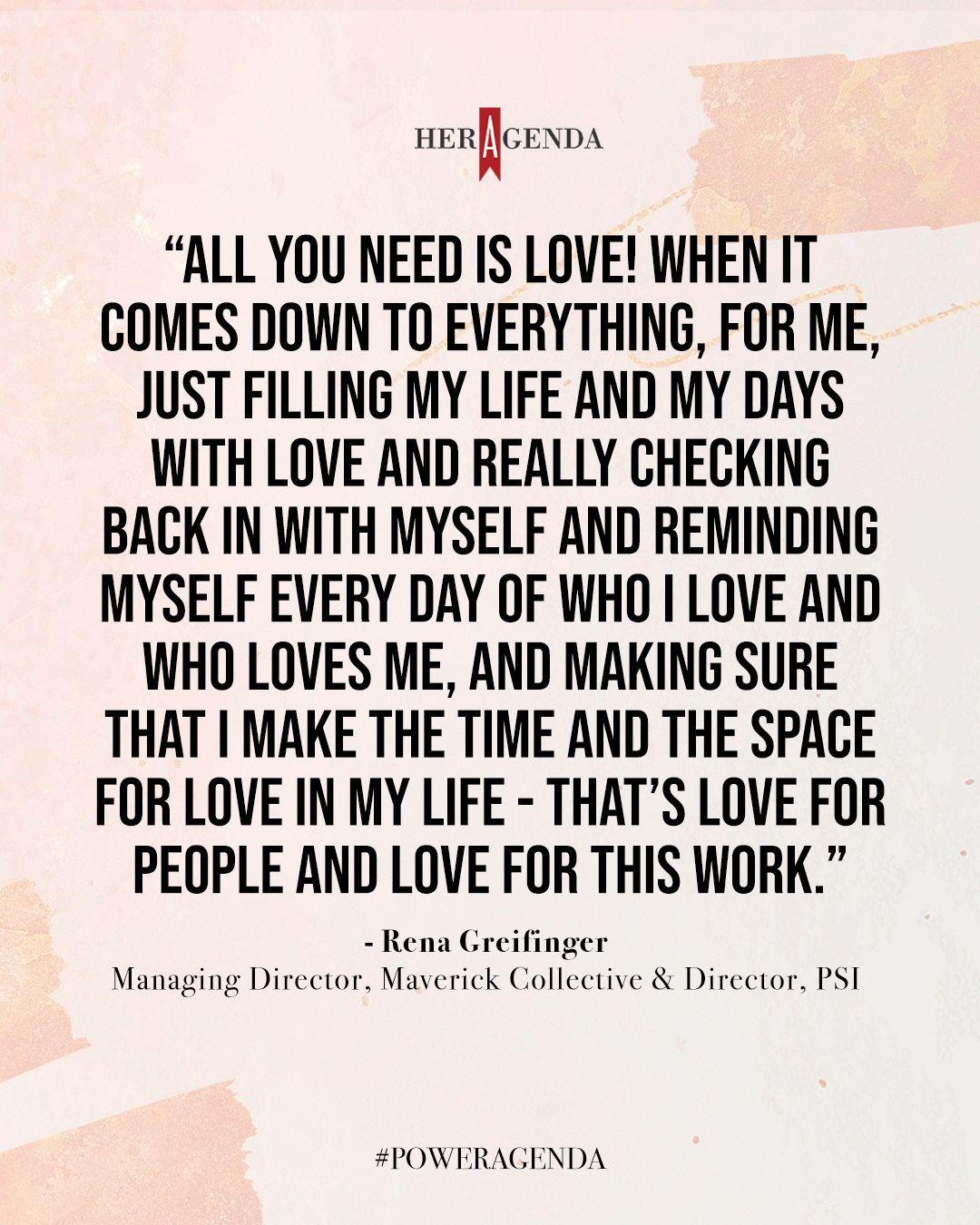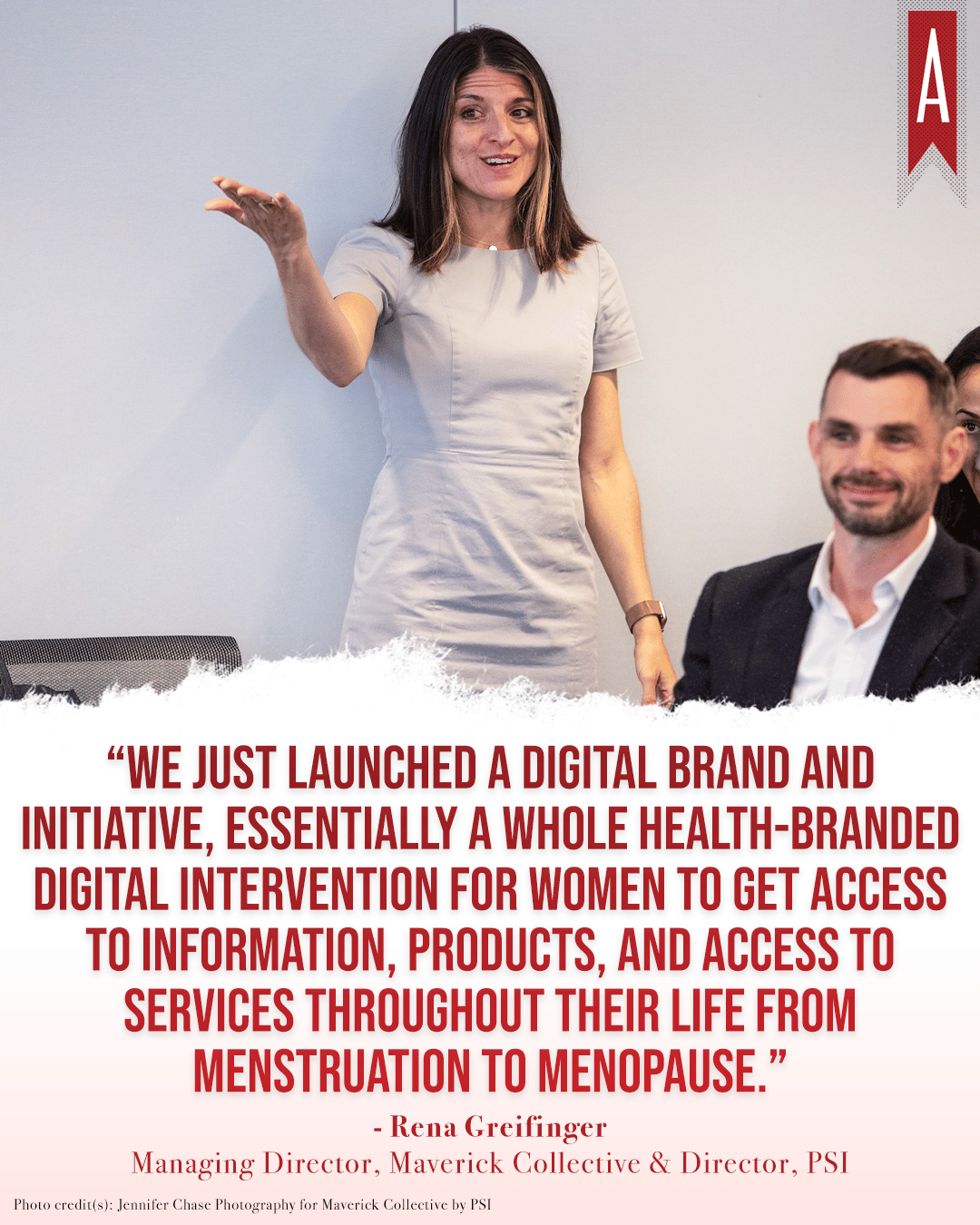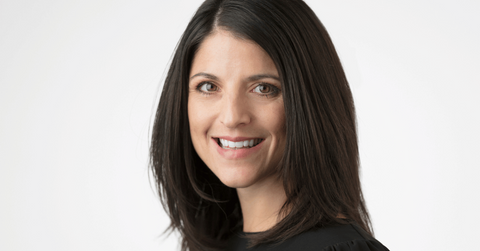Uncomfortable conversations can create lasting changes – and Rena Greifinger proves that having these kinds of conversations can create the changes we need in our lives.
Growing up in a health-based household, Rena followed in her parent’s footsteps in becoming an advocate and champion for women’s sexual and reproductive rights. In our conversation, she recalls seeing protests outside abortion clinics at a young age –– moments like that helped fuel her inspiration to protect and help women on their journeys of learning about sexual health, body autonomy, and reproductive rights. Her journey led her to not only become an activist in this space but to also become the Managing Director at Maverick Collective, a community of women philanthropists who are investing in health and reproductive rights with the aim to accelerate gender equity which is also in partnership with Melinda French Gates and the Crown Princess of Norway. Under their organization, they have created a village of women who are passionate about redefining what philanthropy and bodily rights look like.
We speak with Rena about her role at Maverick Collective, her journey into health activism, her philanthropy initiatives for women, and the ways she supports women’s sexual and reproductive journeys.
Her Agenda: What inspired you to get into the sexual health industry?
Rena Greifinger: Both of my parents work and have worked in public health for their careers. They’re fiercely progressive, and liberal, and instilled in me from a young age this inclination and desire to fight for the rights of everybody, especially for health equity and gender equity. Living in a small town in New York, there was an abortion clinic and I have really early memories of driving by and seeing protestors and my mom giving a finger to these protestors from the car window and honking at them in rage – and her explaining to me why it was so important for women to have access to abortions.
I also remember as a teenager, as I became sexually active, having conversations with my mom about taking the pill and saying, ‘All of this evidence says that the pill helps you with acne and I really want to clear up my acne…’ and she just looked at me and said, ‘Honey, if you’re thinking about having sex, let’s just talk about it because I want you to be responsible and I want you to have birth control, and my dad even prescribed my birth control. So I had this incredibly progressive upbringing with a family where we could talk openly about sex and I was taken seriously and respected as a sexual being. That was really normalized in my household and I just have always wanted to see a world where this type of openness and non-judgment is accessible to everybody in their homes and their communities. My dad is also a prison health expert and spent the first part of his career in the 80s working directly on the HIV and AIDS epidemic when it was beginning. So I was really exposed to the issues around HIV and AIDS and the impact it had on marginalized and stigmatized communities.
Her Agenda: Do you have any advice for parents, especially when it comes to having these conversations around sex and the overall sexual conversation with their kids? What’s the best way they can go about it?
Rena Greifinger: I’m a parent now of two young kids (6 and 3 years old),and so I think about this a lot but what I really believe is that there’s no reason to wait to start having age-appropriate conversations with your kids from a very young age. Particularly at a very young age, I see my kids, they’re constantly exploring their bodies, right? They look at their own bodies, they look at each other’s bodies, and they are exploring their bodies by touch and by sight. We talk about their bodies especially when we’re in the bath. I talk to them about who can touch them and talk to them about their body autonomy. When they’re in the bath, I actually ask them for permission to wash their private parts and use that as a conversation starter to let them know that, ‘You are the only people that are allowed to touch your private parts, right? The only other people are mommy, daddy, and the doctor and we should still be asking for permission. Nobody else can touch you without your permission.’ So we start to talk about consent and about their bodies at a really early age and we try to make sure that it feels very normal and very accepted for them to explore their bodies and to start talking about what is going to happen with the changes in their bodies as they get bigger.
I have talked to them, specifically my 6-year-old, a little about puberty. I’ve explained what it means to have a period. She has seen and been in the bathroom with me when I’ve changed a tampon – and this might be uncomfortable for some people. Maybe this might feel too far but for me, I think it’s really important to just normalize these conversations from the start.

Her Agenda: On the topic of speaking to your daughter about her body, what do women need to know about their sexual and reproductive rights, especially now in 2023?
Rena Greifinger: The first thing I would say is that it’s not just what women need to know but what everyone needs to know about their own sexual reproductive health and rights. So this is a topic for everybody. This is regardless of what year we’re in or what is going on politically, in the larger context I would say that everyone needs to know and internalize that their sexual and reproductive health rights are sacred and need to be protected.
That’s why it’s so enraging that we are living in a current climate where, not only do women have to continue to fight against a kind of culture of domination often by men controlling what we do with our bodies but now with our government. So, it’s so important for people to understand how sacred our rights are, how much we need to protect them, and how much we need to fight for them when they’re under threat.

Her Agenda: Do you have any advice for women when it comes to learning about their own bodies, learning about their sexual and reproductive rights, etc?
Rena Greifinger: There are so many great resources. Someone that I’ll call out is Michelle Bratcher Goodwin; she is an incredible scholar and feminist activist. She’s a constitutional scholar of reproductive rights in the U.S., she teaches at several universities across the United States, and she has a podcast with Ms. Magazine called On the Issues, where she really deconstructs the history of reproductive rights in this country to help us understand, collectively, where rights have gotten stripped away and the ways in which we can fight for those rights again.
For learning about different contraceptive and abortion options, you can check out Bedsider, Sexplanations, and Planned Parenthood. My organization, Maverick Collective, sits at a large global health organization called PSI (Population Services International), and PSI has been working across the global south for about 52 years to bring cutting-edge, high-quality reproductive healthcare to people in about 48 countries. We just launched a digital brand and initiative, essentially a whole health-branded digital intervention for women to get access to information, products, and access to services throughout their life from menstruation to menopause. It’s one place in one app where women can go when they have questions about anything to do with their sexual and reproductive health no matter where they are in their journey, they can get those questions answered. If they want to access products, they can order products and get them either delivered to their door, they can get referrals and scripts from pharmacies, they can connect with peers and communities in the space who are asking similar questions and looking for support. This project is called VIYA, which is this amazing, holistic sexual and reproductive health initiative that we’re launching in many countries around the world; South Africa, Kenya, Uganda, and Central America.
Her Agenda: You mentioned Maverick Collective. Why is it important for women to participate in Maverick Collective and what are the best ways for them to get involved?
Rena Greifinger: Maverick Collective was launched 10 years ago by PSI. We exist today really based on the premise that for too long, philanthropy has been very antiquated, patriarchal, and very male-centered. We wanted to do things differently and redefine the way philanthropy is done – and in order to do that, we needed to engage deeply in the work that we were funding and that is our approach at Maverick; we call it experiential philanthropy, and the idea is that the women who join our community are not only making really bold and risk forward investments in cutting-edge global health work, but they are also engaging deeply in that work as part of their own learning journey so they can become more informed, more strategic, and more authentic advocates and champions for women and girls.
We have a program called, Maverick Next, that is specifically tailored towards what we call the ‘next generation,’ which are women who are just at the start of their philanthropy journey. We have different programs for women; our Maverick Venture program is for women making an investment of a million dollars or more, and funding projects that they can go really deep on. So, using their money to spark innovation and drive change, help us test new ideas and new approaches that other funders aren’t yet willing to fund. They come on board and spend time not only funding that work but in the field, visiting project teams, rolling up their sleeves, learning alongside us, joining calls, going to conferences, and joining roundtables, so they can get smarter on the issues. They use their full power and not just their financial capital but their social capital, their intellectual capital, and their curiosity capital, to help us solve tactical problems.
To get involved, women join us through the different programs with Maverick Collective but we work predominantly with women who are ‘high net worth individuals.’

Her Agenda: What is your personal motto?
Rena Greifinger: All you need is love! When it comes down to everything, for me, just filling my life and my days with love and really checking back in with myself and reminding myself every day of who I love and who loves me, and making sure that I make the time and the space for love in my life – that’s love for people and love for this work. That’s what it comes down to. That’s what we all hear, see, and read when people talk about being at the end of their life and what really matters, and I really try to hold true to that so it comes down to that on a basic level.








